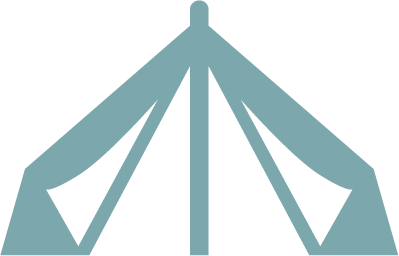Is it time for a digital detox? We tried it, and here’s what we learned
When we first began construction on Whispering Springs Wilderness Retreat, we moved into a little cabin deep in the rolling hills of Northumberland. And like any true cabin or ‘Bunker’, as ours has been affectionately nicknamed, it was far removed from the technological and digital world. No internet, no cell reception, not even a neighbor within view. This made getting a new business started a little challenging – to say the very least. It took a few weeks before satellite dishes and cellular boosters were installed and up-and-running, so we unintentionally found ourselves experiencing what is commonly being referred to as a “digital detox”.
After the first few days of technological withdrawal, something interesting happened. We found that not only did we not mind having technology at our fingertips, but we rather enjoyed it. No one was rushing to check their phones or idly browsing through Instagram. There was no stress of returning phone calls, checking emails or staying up-to-date on Facebook.
Dubbed by some experts as “the world’s next great health crisis”, digital addiction is a growing problem in today’s technologically driven world. Here are just a few (of the many) reasons why it’s important to put down your cell phone, sign out of Facebook and reconnect with the world and people around you:
The average person checks their device about 76 times a day and spends a total of 2.5 hours on their phone every day.
The average millennial checks their phone more than 150 times per day (yikes!).
It has been found that the more a person uses a smartphone, the more reliant and addicted they become. This often leads to moodiness, loneliness, and jealousy.
Individuals often have very little awareness of how often they check their phones and tend to underestimate how much time they dedicate to technology.
Researchers have found that higher scores of narcissism (excessive interest or admiration in oneself and physical appearances) is the most common symptom of digital addiction.
A recent study has found that 34% of Internet users exhibit signs of digital addiction, and have trouble disconnecting from technology, with teenagers and young adults being the most affected.
Utilizing social media triggers the release of dopamine, the same neurotransmitter that is activated by alcohol, drugs, sex, and food.
Digital detox camps are now becoming popular in Asia and Europe to help teenagers and adults combat digital and social media addictions. In California, Camp Grounded is designed specifically for adults to help them “disconnect to reconnect”. It involves strict abstinence from technological devices, nicknames instead of real names, and even talking about work is verboten.
Those few weeks we spent sans Internet and cellular reception turned out to be a few of the most enjoyable weeks of the summer. During our little digital detox from the outside world, we found that more books were read, trails hiked, and interesting conversations were had than ever before – making us realize just how much time is eaten up by technology. While now we are once again connected to the world wide web and our cell phones have a bar or two, our digital detox was an important reminder to be a little less dependent on our smartphones, and more conscious and aware of the present and our surroundings.
For many of us, being connected to the technological & digital world is a necessity rather than a choice. Work, school, friends, and children require us to remain in touch and merely a text message, phone call or email away. When you come visit Whispering Springs Wilderness Retreat we suggest that you try to disconnect yourself from the outside world and have your own little digital detox. Chances are you’ll only get a bar or two in our little corner of the countryside, so it’s the perfect excuse to unplug from the stresses of your everyday life, and reconnect with nature.
“Almost everything will work again if you unplug it for a few minutes, including you.” — Anne Lamott
